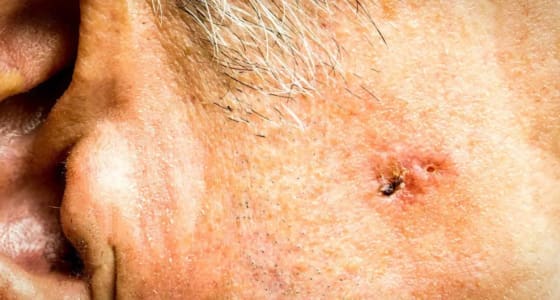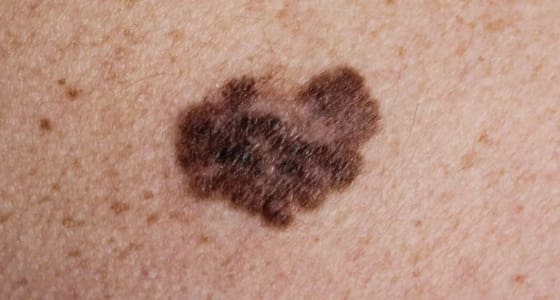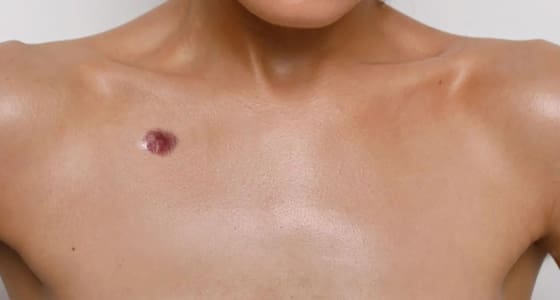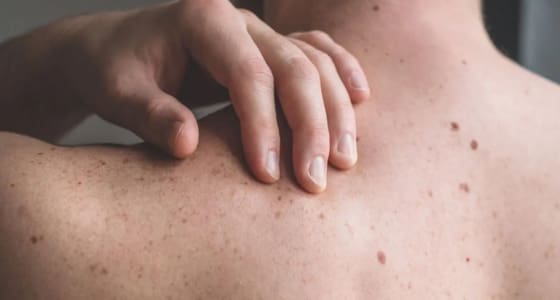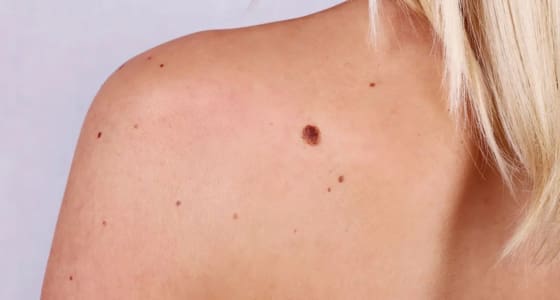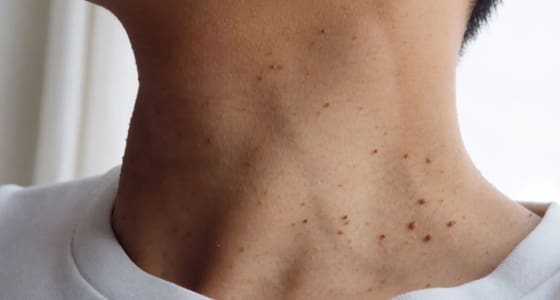The primary goal of this procedure is to completely eliminate the cancerous cells while minimizing the risk of recurrence. Surgical excision is known to be an effective treatment for skin cancer with a high success rate.
Plastic Surgery
Surgical Excision For Skin Cancer
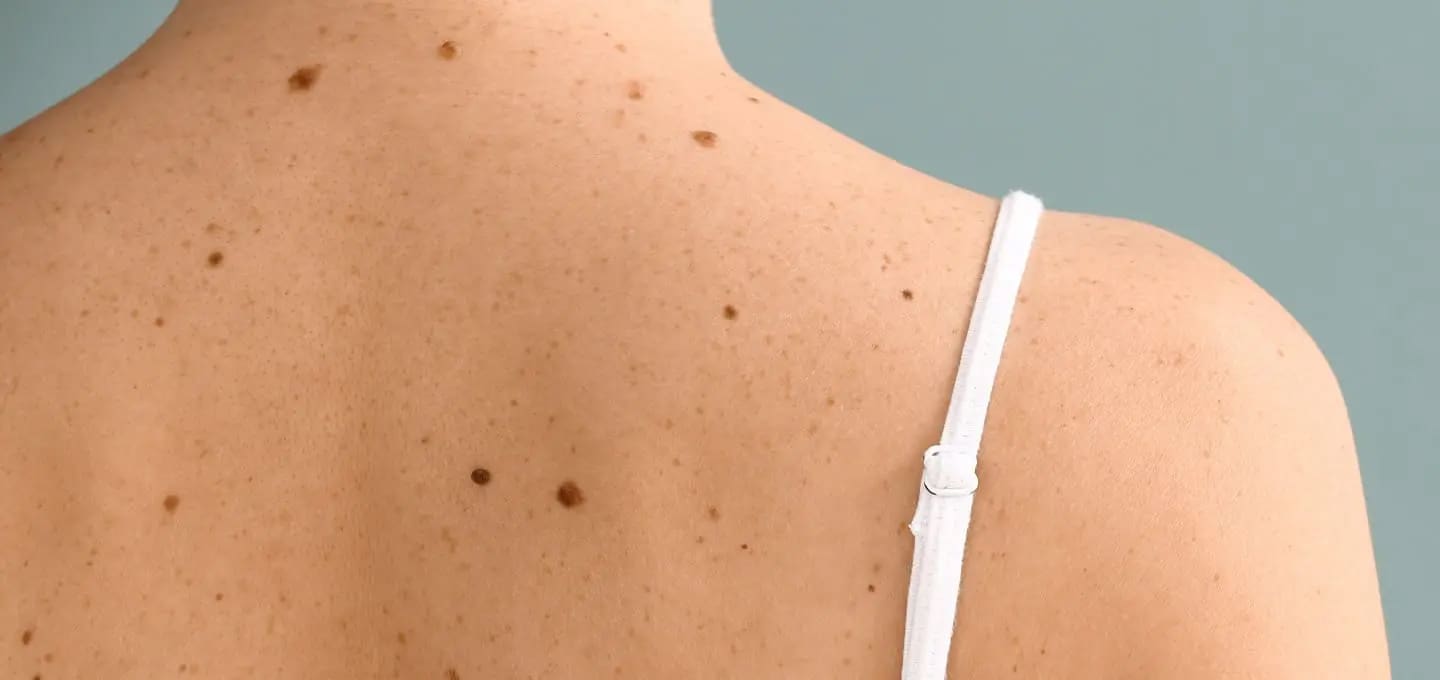
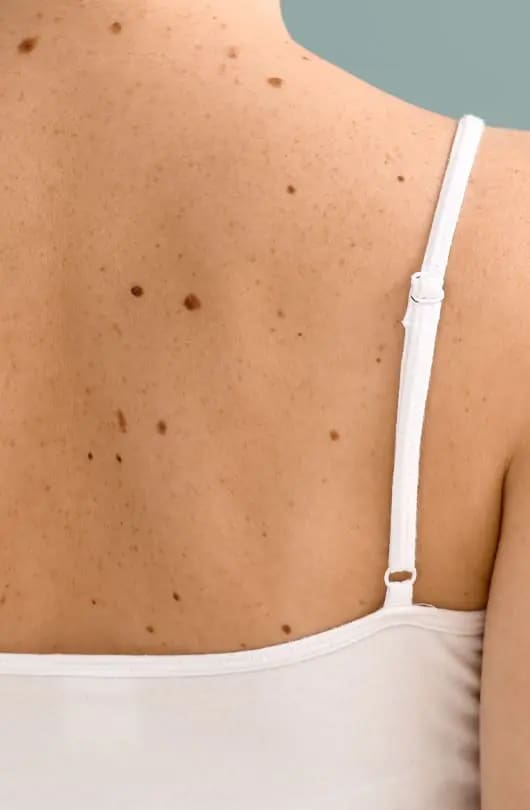
At A Glance
Price:
From £1250
Expected Results:
Treatment of skin cancer
Length of Surgery:
Up to 60 mins
Anaesthesia:
Local anaesthetic
Recovery:
Usual activities by 1 week
Helpful Downloads
What is surgical excision for cancer?
Surgical excision is a commonly used treatment option for skin cancer, involving the removal of the cancerous growth along with a margin of healthy skin surrounding it.
The Consultation
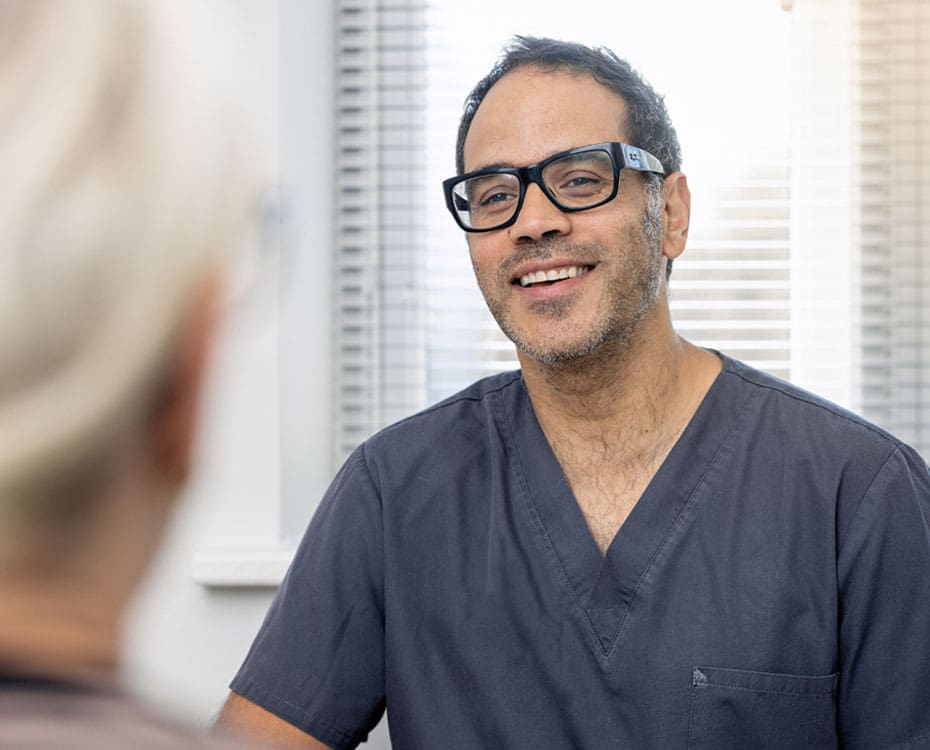
Before undergoing the surgery, patients will have a pre-operative consultation with a plastic surgeon. During this consultation, the medical history of the patient will be reviewed, and the skin cancer will be examined to determine if surgical excision is the most suitable treatment option. If not, alternative procedures such as MOHS surgery may be discussed.
If surgical excision is deemed the best course of action, patients will be informed about the benefits, risks, and potential outcomes of the surgery. Patients may also be advised to discontinue certain medications or supplements to reduce bleeding during the procedure. Additionally, if further treatment such as plastic surgery reconstruction is anticipated, it will be discussed during this stage.
The Procedure
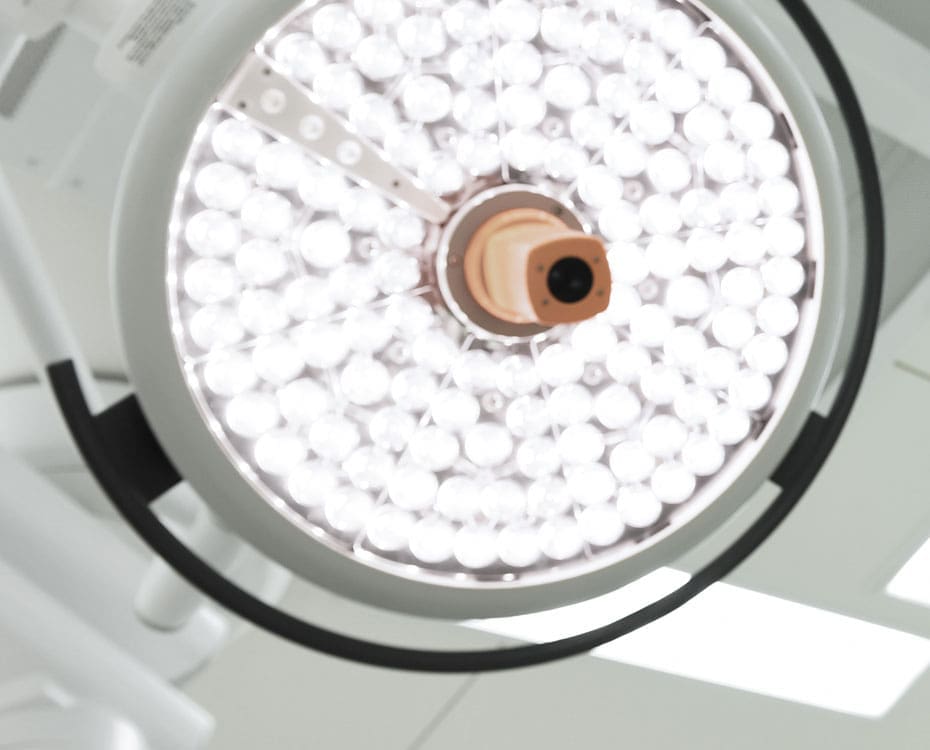
The surgical procedure will take place in one of the advanced operating theatres at The Day Clinic. To ensure a pain-free experience, the area will be numbed using a local anaesthetic before the tumour and surrounding healthy skin are carefully removed. The excised tissue will be sent to a laboratory for microscopic examination to determine the type and stage of the skin cancer and to confirm the success of the excision.
The extent of the excision will depend on the size and location of the skin cancer. In some cases, a simple excision may suffice, while more complex techniques such as MOHS surgery may be necessary for certain cases. MOHS surgery involves the removal of thin layers of tissue for immediate examination, allowing for the progressive removal of cancerous cells while preserving healthy tissue.
Aftercare & Results
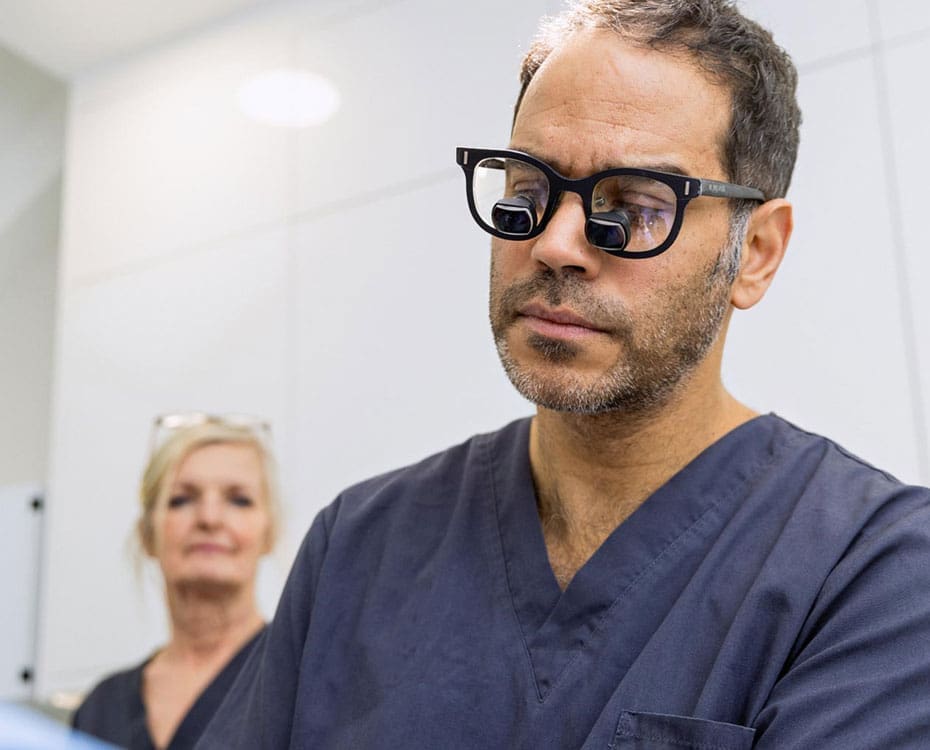
Following the procedure, patients will receive personalised aftercare instructions from their consultant. It is crucial to follow these guidelines for optimal results. If stitches are applied, patients will be advised on how to care for the area and when to have the stitches removed. Pain management strategies, such as using painkillers, will be discussed if needed.
Patients may be required to attend follow-up appointments to monitor the healing process, recovery, and treatment results. Scarring is a common outcome of skin surgery, but techniques such as scar massage and sunscreen application can help minimize its visibility. It is recommended to use a high SPF sunscreen on the area for approximately 12 months post-procedure.
What our patients think
Potential Risks
As with any surgical procedure, surgical excision comes with inherent risks and potential complications, including infection, bleeding, scarring, and changes in sensation. If surgical excision is deemed the appropriate course of treatment for you, our experts at The Day Clinic will thoroughly discuss the procedure as well as the potential risks and side effects.
Infection
Infection is a risk associated with any surgical procedure. Signs of infection may include increased pain, redness, swelling, warmth, or discharge from the wound. Most infections typically manifest around 9 days post-procedure, and treatment often involves a one-week course of oral antibiotics. If you have any concerns regarding a possible infection, we are available to assess and provide appropriate guidance.
Bleeding
Bleeding can occur during or after the excision procedure. In rare instances, excessive bleeding may necessitate medical attention.
Scarring
Scarring is a common outcome following surgery. The degree of scarring can vary based on individual circumstances and healing processes. Our team will make efforts to minimize the appearance of any inevitable scarring.
Nerve Damage
In rare cases, particularly with large or deep lesions, surgical excision may result in damage to nearby nerves, leading to temporary or permanent numbness or altered sensation in the affected area.
Recurrence
Certain types of skin lesions carry a small risk of recurrence. If your surgery involved the removal of a skin cancer, we recommend annual skin checks with a skin expert to monitor for any signs of recurrence or other skin cancers.
Related FAQs
Can surgical excision treat skin cancer effectively?
In the majority of cases, surgical excision is an effective treatment for skin cancer. By removing the skin cancer through surgical excision, we eliminate the cancerous growth along with a surrounding margin of healthy tissue, reducing the likelihood of leaving any cancerous cells behind. The excised tissue is analysed in laboratory post-procedure to ensure complete removal of the cancerous tissue. In some instances, additional treatments may be recommended following excision to target any remaining cancer cells or minimize the risk of recurrence. If deemed necessary, your consultant will discuss these options with you.
How long does it take to recover after skin cancer excision?
The recovery time can vary depending on the size and location of the excision, as well as individual healing factors. Typically, it may take about one to two weeks for the surgical site to fully heal. It is crucial to follow the wound care instructions provided and attend all follow-up appointments to achieve the best possible outcome.
Does skin cancer excision cause pain?
The procedure is performed under local anaesthetic, so you should not experience any pain during the surgery. Some individuals may feel pressure or movement in the area being treated. After the procedure, there may be mild discomfort or soreness at the site, which can typically be alleviated with over-the-counter pain relief such as Paracetamol.
Will I have a scar after surgical excision?
Like any skin surgery, there will usually be a scar at the site of treatment. The appearance of the scar can vary based on factors such as the size and location of the cancer, as well as your skin type. We take precautions to reduce scarring and provide advice on aftercare and scar management to minimize its visibility. If a large amount of skin is removed during the procedure, you may be a candidate for plastic surgery reconstruction following skin cancer treatment. This reconstruction will be performed by a skilled plastic surgeon specializing in reconstructive procedures at The Day Clinic.
Who will conduct the surgical excision of my skin cancer?
The surgical excision of skin cancer is carried out by a highly trained consultant dermatologist or consultant plastic surgeon, depending on the size and location of the cancer. These procedures are performed regularly by all consultants at The Day Clinic, who have experience in both the NHS and at The Day Clinic.
